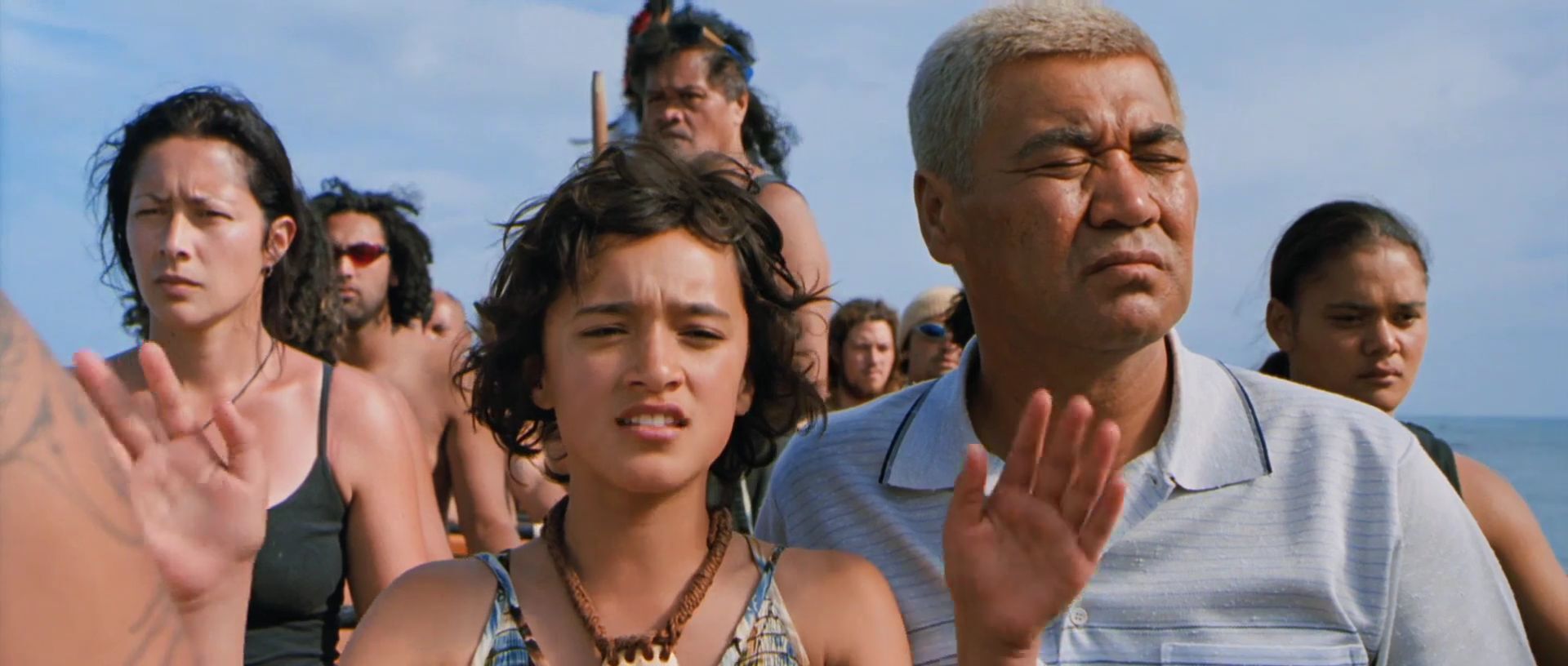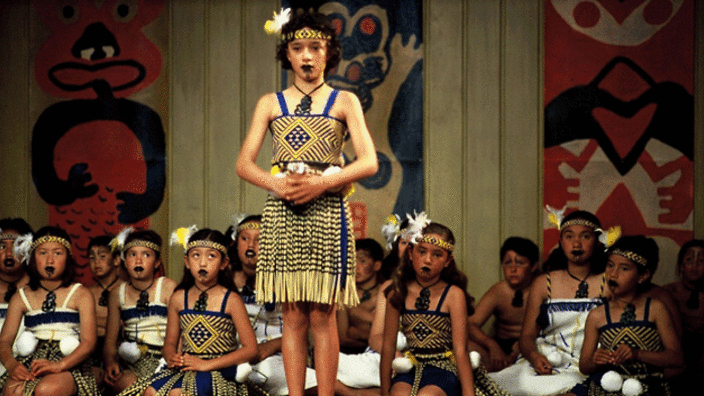The Young Girl and the Sea
Review of Whale Rider at Seattle International Film Festival
Written by Teen Writer Lula Keteyian and edited by Audrey Gray

Twenty-one years ago, Whale Rider, written and directed by Niki Caro, premiered at the Toronto Film Festival. It was met with critical acclaim, receiving an Indie Spirit Award and an Academy Award Best Actress nomination for Keisha Castle-Hughes, the 13-year-old star of the movie. It has become a cult favorite, though it is rarely screened.
I had the exciting opportunity to see Whale Rider in person at SIFF Cinema Uptown. It was a Wednesday night, and I wasn’t expecting a large audience. Surprisingly, when I entered the theater, I observed that many people had turned up. I quickly learned Whale Rider was this month’s pick of the SIFF Cinema Movie Club. After a brief introduction that explained this to non-members like myself, the lights went down, and an arresting tension filled the theater as the audience prepared to live the world of this film for the next ninety minutes.

Whale Rider is a beautifully-shot coming of age movie that portrays rich family dynamics with a specific sense of time and place. It follows the story of a young Māori girl named Pai, whose birthright is to be the next chief. Unfortunately, tradition states that the chief must be a man, and Pai’s grandfather, the current chief, is steadfastly traditional.
With a dead mother and an absent father, Pai lives with her grandparents. Instead of feeling like a bid for our sympathy, Pai’s family situation feels realistic. She has plenty of family left to raise her, and though they have their struggles, their complex family dynamics are the lifeblood of the film. The cinematography works in service of these dynamics. The sweeping beauty of the New Zealand seaside is visually juxtaposed with Pai’s modest yet well-loved home. Family scenes are shot in a nostalgic light. The film seeks to portray this rich world through Pai’s eyes, lingering on a moonlit ocean or gazing out the car window at a bright landscape rushing by. This lets the viewer identify with Pai, and shows us her reverence and love for the place she lives.

It’s clear to the audience from early on that Pai was born to be chief. She is everything a leader should be: brave, strong, sensitive, and thoughtful. The central conflict of the film is that her grandfather is so held back by his traditionalist beliefs that he cannot see this. Pai is both wounded and motivated by this. One of the interesting things about Whale Rider is that it’s a rare example of a film that relies on such a young actor to provide almost all of the emotional weight of the story. Keisha Castle-Hughes, who plays Pai, responds to this challenge with a mastery not often seen in child actors. She carries the film with a presence that is, simply put, fascinating to watch. It’s hard to imagine Whale Rider without Castle-Hughes—I can’t think of any other young actor who would have been able to deliver such a complex and authentic emotional performance.
Seeing Whale Rider on the big screen, I was struck by its originality. In many ways, it’s the only movie of its kind. It’s definitely one of the best portrayals of the Māori people that I’ve seen on film, and it’s a legitimately complex portrayal; the characters feel real, without a hint of exoticism. It feels refreshing to see a movie like Whale Rider stand the test of time as an alternative to the mainstream, yet it’s not so niche that you have to be a specific type of viewer to enjoy it. This film answers recent questions about how to make movies that represent a wider range of identities and stories. It’s original, emotionally impactful, and realistic. Whale Rider is the blueprint, and instead of allowing it to fade into obscurity, we should be celebrating it.
Whale Rider took place at SIFF Cinema Uptown on March 1, 2023. For more information see here.
Lead Photo: Film still from Whale Rider directed by Niki Caro
The TeenTix Newsroom is a group of teen writers led by the Teen Editorial Staff. For each review, Newsroom writers work individually with a teen editor to polish their writing for publication. The Teen Editorial Staff is made up of 6 teens who curate the review portion of the TeenTix blog. More information about the Teen Editorial Staff can be found HERE.
The TeenTix Press Corps promotes critical thinking, communication, and information literacy through criticism and journalism practice for teens. For more information about the Press Corps program see HERE.

